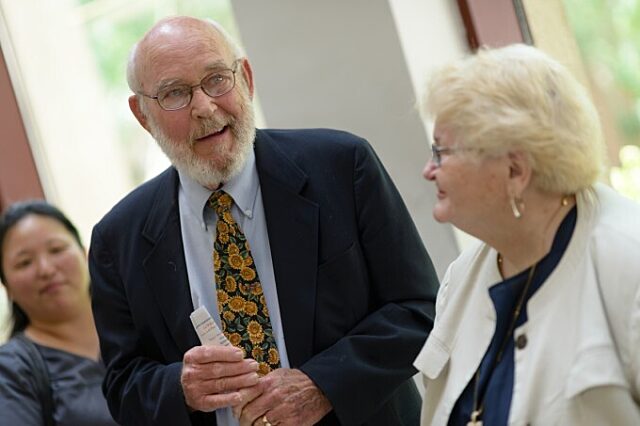William Gray

"Swift stroke care means more memories."
Twenty-eight years ago, William and Willa Gray were on their honeymoon, soaring toward the top of a glacier in a helicopter.
They stopped there to enjoy the view with some wine and cheese. In that moment, they never thought one of them might be in a helicopter nearly three decades later suffering from a stroke.
But, that’s exactly what happened. In November 2014, William, then 73, had just finished sailing and arrived back to the dock at his house. He hadn’t been feeling great that morning, but when he started noticing numbness on the right side of his body, he knew to reach into his pocket for his cell phone. He called his wife, and by then, he couldn’t put words together to tell her what was happening.
“He wasn’t making any sense,” Willa said. “I thought he was joking with me, but then I realized something was really wrong.”
Willa ran down to the water and found William incoherent, lying on the dock. She called 9-1-1 immediately.
“When the paramedics came, they told me there wasn’t much they could do, and they were going to call the helicopter to take him to Gainesville,” Willa said.
William arrived to the UF Health Shands Comprehensive Stroke Center before noon that day. He came in with the right side of his face drooping, speech difficulty and weakness in his right arm. William quickly was diagnosed with an ischemic stroke. Within 25 minutes, he received intravenous t-PA, also known as the clot busting drug. In a recent Centers for Disease Control study in four states throughout 98 hospitals, only 14 percent of patients being treated for ischemic stroke receive IV t-PA within 60 minutes.
“On the dock that morning I thought, ‘This might be my last day on Earth’,” William said. “When I began to wake up in the hospital, I thought it was a miracle.”
William only spent two nights at UF Health Shands Hospital, and with the help of speech therapy, he is living a healthy, happy life with almost no lingering effects of the stroke.
“I am a grateful recipient of excellent treatment,” William said. “The people taking care of me were fast and very careful, and they worked really well together.”